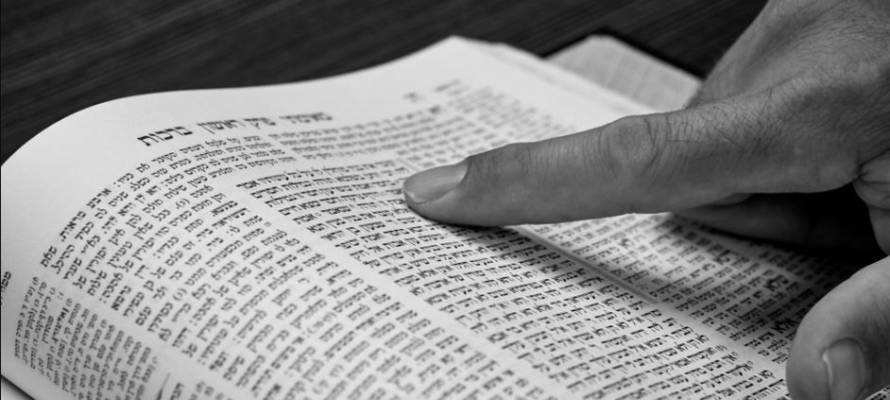Although God expects the Jewish People to keep the Covenant and the commandments of the Torah, it is clear that the their status as the “chosen people” is unconditional.
By Rabbi Ari Enkin, Rabbinic Director, United with Israel
This week’s Torah portion is “Va’etchanan” (Deut. 3:23-7:11) and in it we find the primary source for the concept of a “Chosen People,” and by extension, other such terms such as a “Treasured People” and a “Light unto the Nations.” Let us look at the relevant passages from both this week’s Torah portion and from other areas of scripture.
“For you are a holy people to your God, and God has chosen you to be His treasured people from among all the nations that are on the face of the earth.“ (Deut 14:12).
The Torah also says, “If you will obey My voice and keep My covenant, then you shall be a special treasure to Me from among all the peoples…“ (Ex. 19:5).
So too, God promises that He will never exchange His chosen people for any other: “And I will establish My covenant between Me and you and your descendants after you for all generations, for an everlasting covenant, to be a God to you and to your descendants after you.“ (Gen 17:7).
Although God certainly expects the Jewish people to keep the covenant and the commandments of the Torah, it is clear that the Jewish People’s status as the “chosen people” is unconditional.
There are other verses about this chosenness, as well. “And you shall be unto Me a kingdom of priests and a holy nation“ (Ex. 19:6), and “God did not set His love upon you or choose you because you were more numerous than any other nation. You were actually the fewest of all people! But it was because God loved you and He would keep the oath which He had sworn unto your ancestors.“ (Deut 7:7).
The obligation imposed upon the Israelites was emphasized by the prophet Amos: “I have singled you out from all the families of the earth….“ (Amos 3:2).
Another famous term associated with the Jewish people is the “Light unto the Nations.” This term was given to us by the prophet Isaiah, where he said in two different places, “…And I shall make you as a light unto the nations, to be My salvation until the end of the earth” (Isaiah 49:6) and “I the Lord have called to you in righteousness and I have taken hold of your hand…to be a light unto the nations” Isaiah 42:6. And similarly, “And unto your light nations shall walk and so too the kings to the brightness of your rising” Isaiah 60:3.
The two concepts, “chosen people” and “light unto the nations,” are independent of one another though they complement each other. The Jewish people were chosen to lead the world by example and serve as a light, a role model for everything good. It is the Jewish people who brought monotheism to the world; the non-Jewish world loved the idea and created their own versions of monotheism. As we will see below, this is all Judaism cares about – that the entire world believe in One God. How the non-Jewish world serves Him doesn’t interest us much.
But make no mistake…Even though we are the chosen people, it does not mean that God does not have a relationship with other nations. He most certainly does. We are all His children. The Torah even tells us so. For example: Moses refers to God as the “God of the spirits of all flesh”(Numbers 27:16). In fact, the Torah also lists a number of non-Jewish prophets and holy men by name who were beloved to God for their acts of kindness and righteousness. Noah wasn’t Jewish but “he walked with God.”
The Mishna (rabbinic literature) teaches us that “All of mankind was produced from one man, Adam, to show God’s greatness. When man mints a coin in a press, each coin is identical. But when the King of Kings, the Holy One, blessed be He, creates people in the form of Adam, not one is similar to any other.”
And in yet another Mishnaic teaching: “One who kills or saves a single life has killed or saved an entire world,” which clearly equates all human life as equal.
And don’t think that only Jews go to Heaven. The Talmud tells us that, “Righteous people of all nations have a share in the World to Come.”
We all have a share in the World to Come, but it is much harder for Jews to get into Heaven than Gentiles! Yes, that’s right. For Jews to get into Heaven (or at least to get a good seat there), we need to keep the Torah and observe its many commandments. For Gentiles to get into heaven, however, they only need to be good people and follow seven basic laws, known as the “Seven Laws of Noah.”
This is why I always discourage non-Jews from converting. I explain to them that they have it easy. I tell these people: “God loves you already and you’ll go to heaven simply by being good people. Why make it harder for yourself and have to follow so many more rules to get into Heaven?”
We were chosen to follow the Torah, nobody else. There is no need for non-Jews to start doing so. They weren’t “chosen” for the mission.
I hope that I have made the idea of a “chosen people” that much clearer!
For more insights by Rabbi Enkin on this week’s Torah portion, click on the links below.
https://unitedwithisrael.org/living-torah-when-your-aim-is-true-nothing-is-impossible/
https://unitedwithisrael.org/living-torah-why-does-judaism-prohibit-marrying-outside-the-faith/
https://unitedwithisrael.org/living-torah-the-power-of-prayer/
